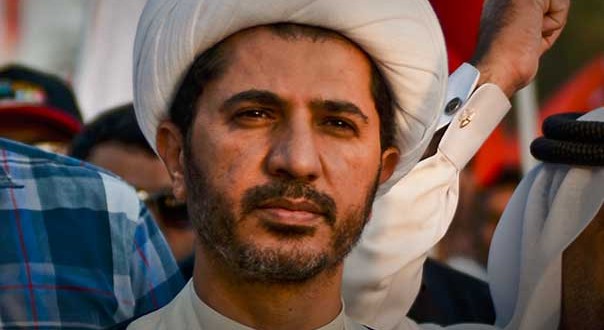AhlulBayt News Agency - Sheikh Ali Salman, the Secretary General of Al-Wefaq National Islamic Society, was summoned to appear before the security authorities last December. And so he did, to demonstrate his readiness to pay an excise for leading the political rights movement to a constitutional monarchy in Bahrain. On the official decision to arrest him, then, part of the international community called on the Bahraini Authorities to ensure fair and transparent court proceedings. Whilst the Secretary General of the United Nations and its Office of the High Commissioner for Human Rights (OHCHR) took a firm position urging for the immediate and unconditional release of Sheikh Ali Salman, considering he is a prisoner of conscience and his arrest is arbitrary. This position has been reiterated several times.
To the international community that called to ensure a fair trial, we ask, what are the requisite standards of a fair trial?
Practitioners divide these standards to those before, during and after the trial. Here, we examine the first and second stages; before and during the trial.
First: the requisite standards before trial:
- Right to freedom: Al Wefaq’s Secretary General has been in prison for over five months now, although all international human rights bodies, including the UN Secretary General and the OHCHR, said he must be immediately released and considered his arrest arbitrary. Has this right been ensured?
- Detainee’s right to obtain information on his case: Salman’s lawyers have repeatedly complained of being prevented from seeing the investigations documents and the lawsuit file before the interrogation session. Thus, the Public Prosecution Office ignored a right that is ensured by the national criminal due process law. The lawsuit file documented repeated requests by the lawyers to see it before and after every interrogation session. But the decision was only issued before the last session so the lawyers can see only the new documents.
- Defendant’s right to legal access prior to trial: the Public Prosecution Office has repeatedly boasted about this procedure in its statement, but in implementation, it allowed Sheikh Ali Salman to meet his defense team only 10 minutes before his hearing sessions begin. In fact, he could only see his lawyers in a public place where they simply do not have the necessary privacy to discuss his case while, at the same time, being prevented from reading the lawsuit documents. What could a defense panel possibly discuss with its client in such circumstances? And is this the right to legal access that the international community understands?
- Rights and requisites during interrogation: if the trial of Sheikh Ali Salman is supposed to be a fair one, then why does he have to stand interrogations sessions that take up to eight hours while the defense team was told it has exhausted the prosecution witness in a session of less than three hours. And in which most of the defense team’s questions were declined. Was the interrogation meant to reach the truth if it was directed to search for conviction evidence and block out innocence evidence? Can the truth prevail if the statements of the defendant have been de-contextualized, let alone the court’s disregard to the innocence of the defendant until proven guilty.
Second: requisite standards during trial:
- Right to equality under by law and before the court: Human Rights Watch gave a good explanation in its report on the Bahraini judicial system. For the very same court that excuses defendants serving at the Ministry of Interior and searches for evidence for acquittal takes a totally opposite position through flowy explanations of the law when the defendant is a dissident. This was seen clearly in comparing the hearing sessions of the Prosecution Office’s witness and the defense witnesses. Furthermore, the court allowed the Public Prosecution Office to present its argument and denied Sheikh Ali Salman and his defense team from presenting their defense plea.
- Right to publicity of lawsuit: the court went against this principle by preparing a list of names of persons allowed to attend the trial sessions. Representatives of the press and rights organizations as well as Al Wefaq were prevented from entering the court. Only a couple of family members were allowed to attend.
- Innocence of defendant until proven guilty: again, the court violated a vital requisite of fair trial by refusing to hear the recordings of the speeches he is being tried for and which refute the accusations and prove the spiteful motives behind the lawsuit. The court also denied him right to discuss the evidence of his innocence. As for the Public Prosecution Office, it went on filling the press with statements to create a public opinion against Sheikh Ali Salman from the first day of his arrest. One can only conclude the Prosecution Office’s blatant violation of this requisite in its attempts to change the meanings of Salman’s statements and tell the public that he had admitted to these statements.
- Defendant’s right to defense, either by oneself or by a lawyer: the last hearing session was the most obvious violation to this requisite as the court denied Sheikh Ali Salman and his defense team from oral argument and even inspected his lawyers upon arrival at the court in violation to trial procedures. His lawyers were also attacked in the quasi-state press in attempt to make them recede from doing their job.
Right to discussion with witnesses: as to this part, the court refused to call in the Minister of Interior and the general security chief. Also, it prevented the defense team from challenging the statements of the prosecution witness and the speeches which he quoted selected parts from.
After all this, can any fair person talk about requisite standards of a fair trial?

